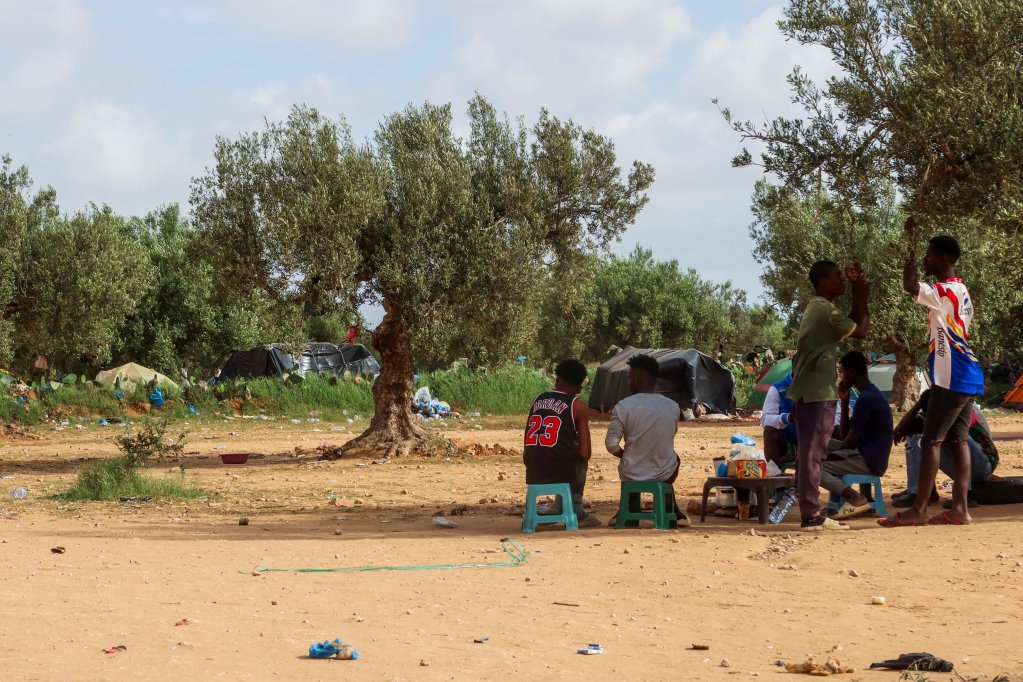Migrant women in Tunisia are facing widespread sexual violence, with many victims left without medical or legal assistance. Organizations supporting these women report that sexual assaults often lead to unwanted pregnancies, yet they have no access to healthcare or protection.
Since February 2023, life has become unbearable for migrants in Tunisia following xenophobic remarks by President Kaïs Saïd. Deprived of work and housing, most migrants now live in poverty, either on the streets or in makeshift camps near Sfax. For migrant women, the situation is even worse as they lack access to sanitary products, contraception, and gynecological care, making them more vulnerable to abuse.
Lava*, a 23-year-old from Sierra Leone, has been raped twice since arriving in Tunisia in May 2023. The first attack happened in September 2024 when she was trying to board a boat to Europe. She says Tunisian officers in uniform stopped the migrants, seized their boat, and raped her before she lost consciousness. The second assault occurred in February when three men attacked her in the street while she was in Tunis searching for work. “They raped and beat me. My friends found me crying on the sidewalk,” she said.
Many migrant women attempt to move into cities to find work and escape the harsh conditions of the camps. However, without legal status or financial support, they are often forced to beg, many with young children in tow. Romdhane Ben Amor, spokesperson for the Tunisian Forum for Economic and Social Rights (FTDES), confirms that migrant women have no options for survival beyond begging or seeking informal jobs that expose them to further risks.
Despite the high number of assaults, most victims remain silent due to stigma and fear. Lava never reported her rapes, explaining, “You don’t tell anyone here if you’ve been raped; you just cry at night.” The only person she confided in was Dr. Ibrahim, a Sierra Leonean anesthesiologist who provides medical aid in the camps with extremely limited resources. He admits feeling powerless, stating, “The only thing I can do is tell these women to accept their fate. I’m not going to tell them to talk about it.”
While the International Organization for Migration (IOM) claims that migrant women in Tunisia can access family planning through institutional partners, local realities tell a different story. Abortion is technically legal in Tunisia during the first trimester, but in practice, many women lack access due to shortages, reluctance from medical professionals, and social stigma. “Most pregnant women in the camps are pregnant due to rape,” Lava says, echoing what many migrants and aid workers believe.
Sexual violence against migrant women remains largely ignored by authorities. According to Ben Amor, the Tunisian government does not permit organizations specializing in reproductive health to work freely with migrant populations. Furthermore, women who seek justice risk deportation. Lava never considered reporting her rapes for fear of being sent back to Libya or Algeria, where conditions are often worse.
The deportation of migrants is a common practice in Tunisia. A recent report revealed that members of the Tunisian National Guard have allegedly sold migrants to Libyan militias at the border. Once in Libya, migrants are detained in desert prisons before being transferred to official detention centers. Many families receive ransom demands for their release, while detainees face torture and abuse.
As migrant women continue to suffer in silence, there is little hope for justice or protection. Without urgent action, their struggles will only worsen, leaving them trapped in a cycle of violence, poverty, and fear.

